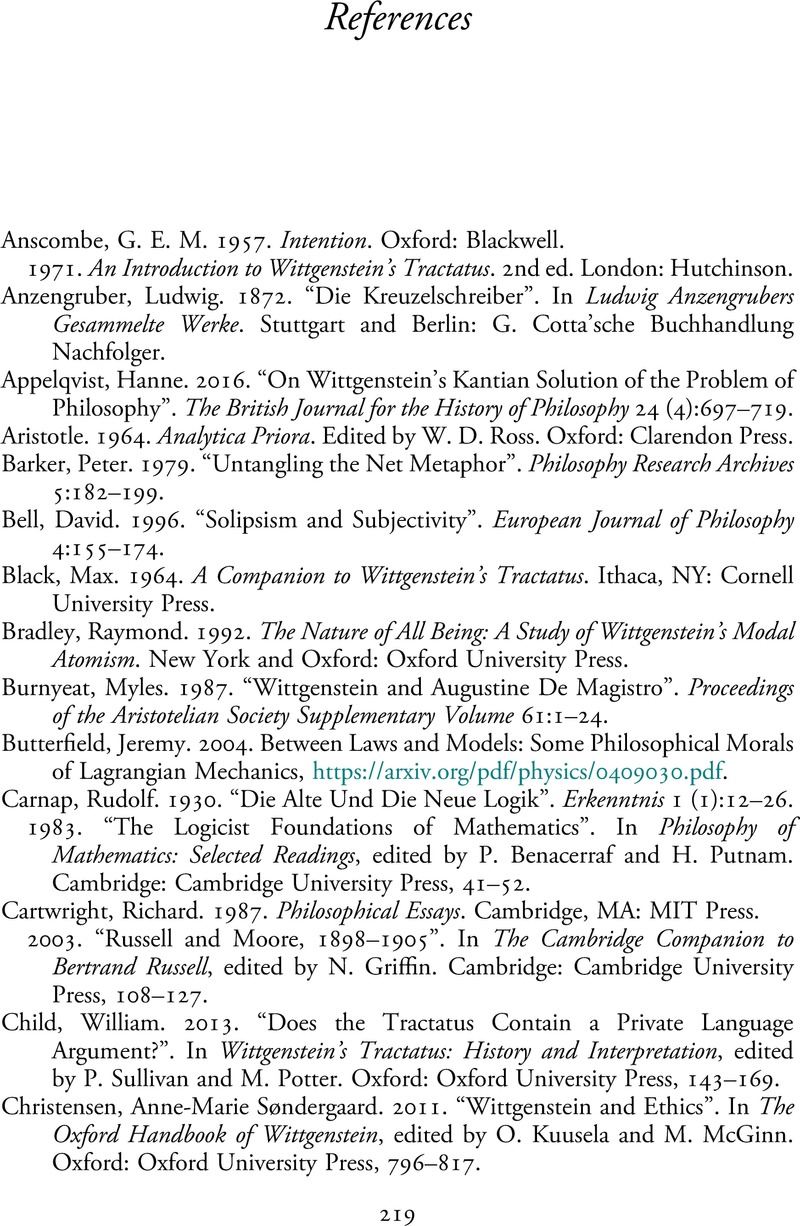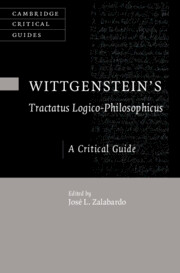Book contents
- Wittgenstein’s Tractatus Logico-Philosophicus
- Cambridge Critical Guides
- Wittgenstein’s Tractatus Logico-Philosophicus
- Copyright page
- Contents
- Contributors
- Introduction
- Chapter 1 Wittgenstein’s Impatient Reply to Russell
- Chapter 2 Modality in Wittgenstein’s Tractatus
- Chapter 3 Clarification and Analysis in the Tractatus
- Chapter 4 The Fish Tale: The Unity of Language and the World in Light of TLP 4.014
- Chapter 5 That Which ‘Is True’ Must Already Contain the Verb: Wittgenstein’s Rejection of Frege’s Separation of Judgment from Content
- Chapter 6 Solipsism and the Self
- Chapter 7 The Tractatus and the First Person
- Chapter 8 Arithmetic in the Tractatus Logico-Philosophicus
- Chapter 9 ‘Normal Connections’ and the Law of Causality
- Chapter 10 The Ethical Dimension of the Tractatus
- Chapter 11 “Obviously Wrong”: The Tractatus on Will and World
- References
- Index
- Cambridge Critical Guides
- References
References
Published online by Cambridge University Press: 07 March 2024
- Wittgenstein’s Tractatus Logico-Philosophicus
- Cambridge Critical Guides
- Wittgenstein’s Tractatus Logico-Philosophicus
- Copyright page
- Contents
- Contributors
- Introduction
- Chapter 1 Wittgenstein’s Impatient Reply to Russell
- Chapter 2 Modality in Wittgenstein’s Tractatus
- Chapter 3 Clarification and Analysis in the Tractatus
- Chapter 4 The Fish Tale: The Unity of Language and the World in Light of TLP 4.014
- Chapter 5 That Which ‘Is True’ Must Already Contain the Verb: Wittgenstein’s Rejection of Frege’s Separation of Judgment from Content
- Chapter 6 Solipsism and the Self
- Chapter 7 The Tractatus and the First Person
- Chapter 8 Arithmetic in the Tractatus Logico-Philosophicus
- Chapter 9 ‘Normal Connections’ and the Law of Causality
- Chapter 10 The Ethical Dimension of the Tractatus
- Chapter 11 “Obviously Wrong”: The Tractatus on Will and World
- References
- Index
- Cambridge Critical Guides
- References
Summary

- Type
- Chapter
- Information
- Wittgenstein's Tractatus Logico-PhilosophicusA Critical Guide, pp. 219 - 230Publisher: Cambridge University PressPrint publication year: 2024

